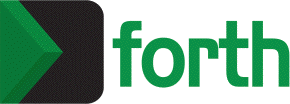Every shortwave radio listener and amateur radio operator should watch this video. Brings new life (ironically) to QSLing.
A visit with Wolf Harranth, OE1WHC, Dokufunk Curator from Jonathan Marks on Vimeo.

Every shortwave radio listener and amateur radio operator should watch this video. Brings new life (ironically) to QSLing.
A visit with Wolf Harranth, OE1WHC, Dokufunk Curator from Jonathan Marks on Vimeo.
Free North Korea Radio is giving voice to a growing opposition to the dictatorship, writes David McNeill in Seoul.
Building up a new network of stringers took time. Today, 10 freelance journalists provide reports from behind the bamboo curtain on a retainer of about $100 (€73) a month. They include a university professor, a teacher, at least two soldiers and a North Korean security agent…
…FNKR provides them with small digital recorders, which are used to record interviews, and mobile phones with signals that work across the Chinese border – Pyongyang’s fledgling mobile- phone system was bought from Egypt and is incompatible with the South Korean network.
The recordings are smuggled across the Chinese border and transported back to Seoul via a network of spies.
The results detonate on air during Voices of the People , where the raw views of the North’s citizens – electronically distorted – are broadcast back into their own country. Brainwashed automatons in so much reporting, the people heard here emerge as thrillingly human, alive and angry.
Read full article in the Irish Times.
Other reports of Free North Korea Radio:
For all its transmission expense and audio problems, analog shortwave radio has one clear advantage over the Internet and domestic radio/TV: It cannot be easily blocked — even when states try to disrupt its signals using jamming transmitters.
This is one of the best articles I’ve read recently about the state of shortwave broadcasting. It features authorities on the subject like Andy Sennitt, Larry Magne and Kim Elliott. Moreover, it highlights the historical appeal and the challenges shortwave broadcasts face in the internet age. Click here to read the full article on Radio World’s website.
 Jason Walsh, of Ireland’s forth magazine, attempts to separate the news from the propaganda on the international airwaves – and finds it impossible
Jason Walsh, of Ireland’s forth magazine, attempts to separate the news from the propaganda on the international airwaves – and finds it impossible
IMAGINE THERE was a communications medium that spanned virtually the entire globe and was virtually impossible to censor. Now imagine that, unlike the internet, it couldn’t be switched-off by the powers that be and didn’t require expensive equipment or monthly subscription fees to access. That would be a powerful voice for democracy, wouldn’t it?